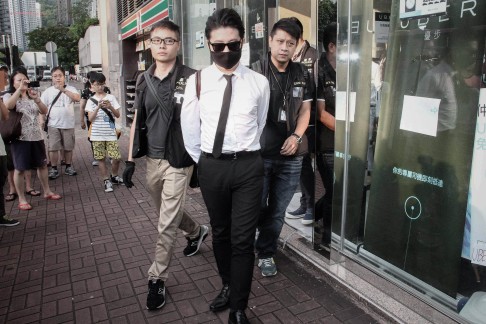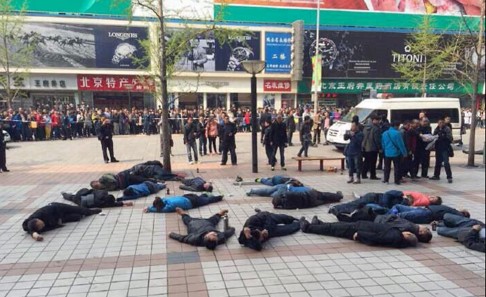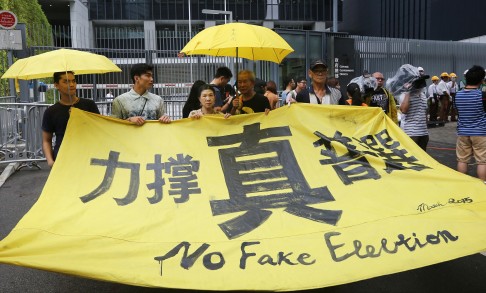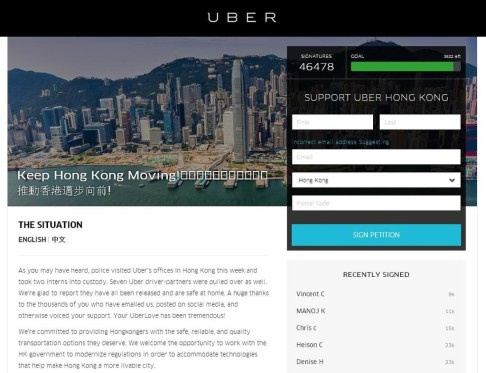
Hongkongers rally to Uber’s cause as nearly 50,000 sign petition in favour of continued service after arrests
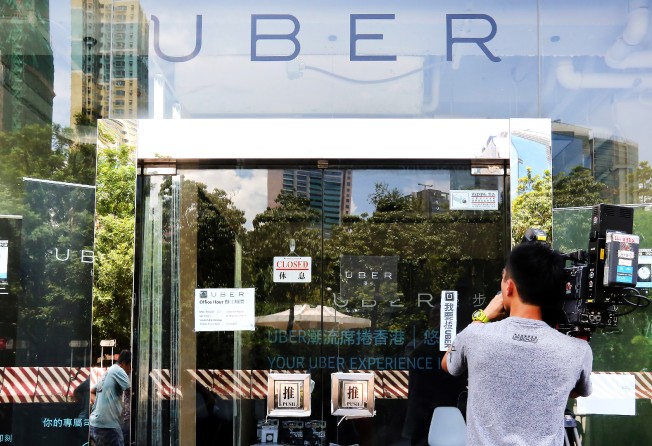
Nearly 50,000 people have signed a petition by Uber Hong Kong expressing their support for the car-hailing app in the wake of this week’s police crackdown that saw seven Uber drivers arrested and three office staff detained.
The petition, titled “Keep Hong Kong Moving”, was launched on Thursday afternoon just days after seven Uber drivers in the city were caught in a sting operation and apprehended for not possessing the correct permits.
A raid on Uber’s offices was also conducted Wednesday, with documents and computers confiscated.
This follows on from previous police raids on the company’s Chinese offices in May in two major southern Chinese cities – Sichuan’s Chengdu and Guangzhou – as the embattled app faces a backlash from taxi drivers in Hong Kong, China, and around the world, for encroaching on their business and eating into their earnings.
In just two hours, the campaign reached its target of 10,000 signatures. The company also urged the public to tweet their support with the hashtag #SupportUberHK.
Overwhelming support in just 2 hours, going to raise our target to 20,000! https://t.co/N2EOLKO0QT
— Uber HK 優步 (@Uber_HK) August 13, 2015
As of 3.30pm on Friday, the number of signatures was approaching 46,500.
“We welcome the opportunity to work with the HK government to modernise regulations in order to accommodate technologies that help make Hong Kong a more liveable city,” read the petition
“We look forward to meeting with the Transport and Housing Bureau, other government bodies, and legislators to discuss how we can work together to encourage innovation and create a better Hong Kong for residents, tourists, and business travellers,” it continued.
The social media campaign has received the support of public figures such as Hong Kong lawmaker Charles Mok, who shared the petition on his Twitter account.
“When you enter a space where you really create changes and, in our view, make things a lot better and more efficient, it's very frequently met with resistance,” Uber Hong Kong GM Sam Gellman told Computerworld.
“Our goal is to work with the governments and the regulators who appreciate our technology.”
But Uber has also attracted critics of its social media campaign.
“If taxi service is bad in your country, you can ask for better service or new competitors, but with laws and rules. Not #SupportUberHK,” posted a user with the Twitter handle ‘anderws’.
This is not Uber’s first attempt at rallying support for the company.
In July, Uber launched a petition and social media campaign slamming New York Mayor Bill de Blasio after he proposed limiting the growth of ride-hailing companies like Uber to 1 per cent monthly until September 2016.
He said this was how much time the city government needed to study how such services could impact congestion.
Uber claimed that its fleet of cars in New York was growing at a rate of about 3 per cent a month.
It then placed a masthead ad on the cover of The New York Times calling for readers to sign its petition against de Blasio’s proposal.
The petition was followed by a high-profile TV ad highlighting how Uber has changed the lives of its drivers for the better.
Uber even went so far as to implement a “de Blasio” feature on its app, showing fewer cars for hire and longer waiting times to illustrate how the mayor’s proposal might negatively impact passengers.
Uber’s fight in the Big Apple apparently paid off: less than two weeks later, it reached an agreement with the city government that no cap would be imposed on the growth of car-hailing services while a four-month study was conducted.
But it remains unclear whether Uber’s petition in Hong Kong will yield any substantial results.
A petition and mock referendum organised during last year’s Occupy Central protest ended up going nowhere despite attracting over one million signatures.
